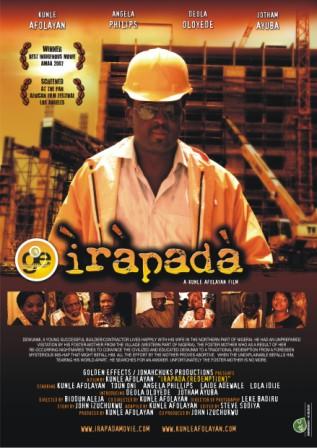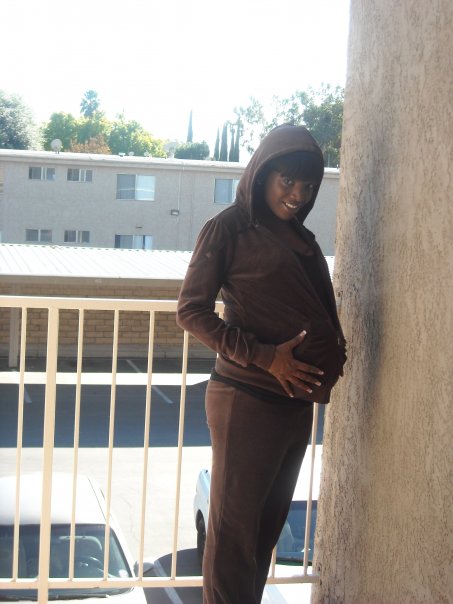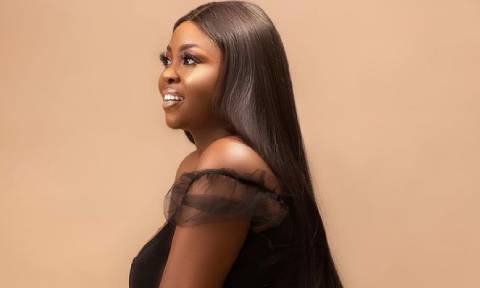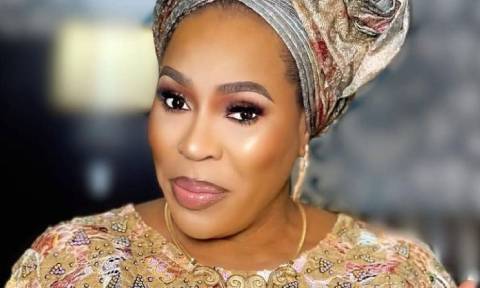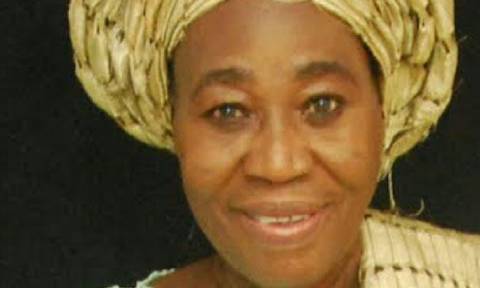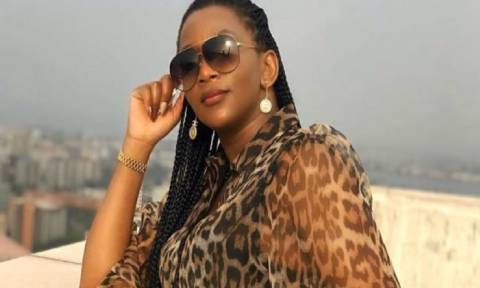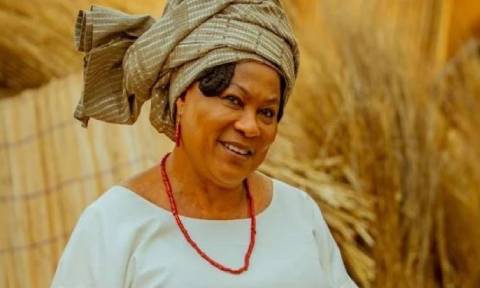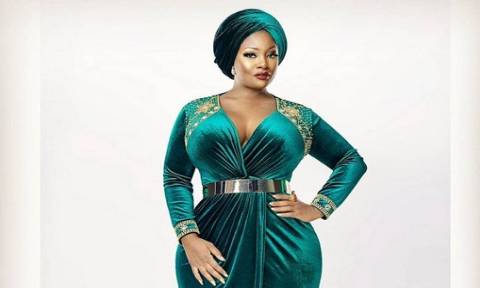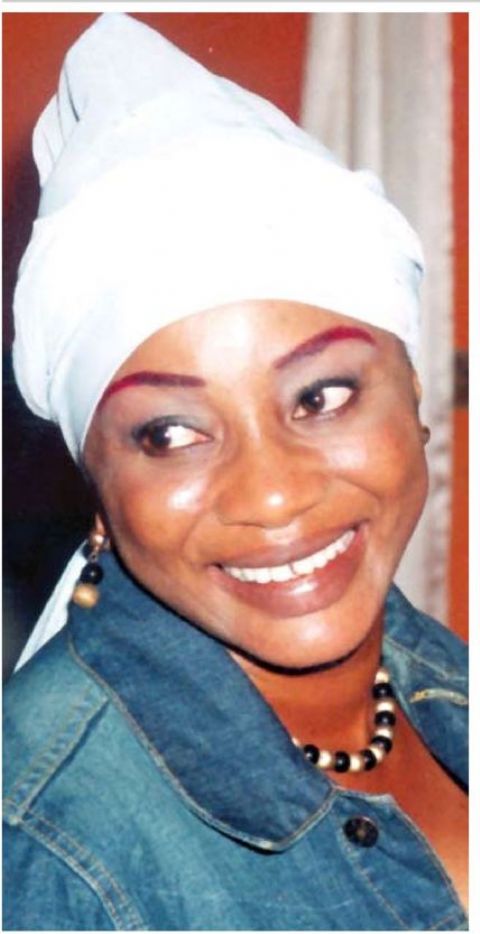
YOU have been in the industry for quite a while now, what has been your experience? The most outstanding is the fact that the industry in my earlier years as an actress was a lot better than what it is right now, especially when talking about creativity, content, technicalities and professionalism. Yester years, we had trained practitioners in every aspect of the business; we had professional consultations amongst the bodies representing different aspects of the industry. We also had critics monitoring and criticising both the works on the screen and the stage because they would actually go and watch plays, soap operas, films, etc; we used to have cinematic films. They would criticise to give value to content, but today, what we have is bad creative content, bad technical people, 20% of whom are trained and 80% are not and these people are the ones resisting the concept of proper training. When you are telling people the right thing in Nollywood, they ostracise you, they do not want to work with you because of some kind of inferiority complex and they give you a bad name. Eighty per cent of people who are in the industry are not supposed to be there which wasn’t what it was in my earlier years. Professionally in Nigeria, my experience has been going from good to bad and bad to worse. I have had my best experiences on stage because stage theatre acting has taken me all over the world but the unfortunate situation that makes me sad today is that theatre is dying in Nigeria because of the fact that there are no patrons. Theatre is one that thrives and sustained by patronage ––nonprofit sustenance but in Nigeria, it is all about profit.
Are you saying that the industry is deteriorating despite the fact it is being praised all over as the third largest movie making industry in the world?
Yes, the industry is deteriorating and the most pathetic aspect of it all is that Nollywood practitioners are celebrating and getting carried away that Nollywood is the 3 rd largest. Nollywood movies are being watched all over the world but by whom? Are Nollywood films being watched by professional film makers in the developed world who can move Nollywood forward? No! Are the people watching Nollywood movies all over the world giving back to Nollywood? Nollywood movies are being watched all over the world because it’s free; without the producers, all the actors and actresses, all the other departments do not have anything to show for it! Anybody would love to assess anything that is free! Nollywood films being watched all over the world is not improving the technical content of Nollywood, it is not improving the creative content of Nollywood, it has not seen Nollywood films being nominated for international movie awards, it has not seen Nollywood actors and actresses being invited to come and act in Hollywood or European films. Rather, what we have are Nigerians in America; some of them who are interested in filmmaking having been inspired by Nollywood coming together to shoot a Nollywood film in America; then you find Nollywood actors and actresses granting interviews that they are going to America to shoot a movie or they are going to Hollywood to shoot a movie. Are they going Hollywood to work on a Hollywood movie? No single Nollywood actor or actress has gone to Hollywood to act in a Hollywood movie. What they have gone to do, is to act in movies being financed by Nigerians in America, so let’s get it straight and stop fooling people. All the hullabaloo, all the third in the world has not put anything back into the industry.
Do you have one or two words to say that can change the movie industry for the better and move it to the next level?
First and foremost, I have consistently said in the last two years that the crux of the problem is the segmentation and tribalism in the industry. Hollywood, Bollywood, the German movie industry are not tribalised but the Nigerian movie industry is tribalised. You have ‘Kanowood’ in the North, you have ‘Yoruwood’ –the Yoruba movie industry, you have the Igbo movie industry parading itself as Nollywood and you have the Edo State people within that Nollywood trying to carve out an ‘Edowood.’ The only way this thing can work is if there can only be one actors’ union representing all the screen actors in Nigeria, and one actors’ union representing all the stage actors in Nigeria, one single directors’ union representing all the screen directors in Nigeria and all the stage directors under one union. It is only if we have one single body that we can unionise and that is when we can become recognised as a viable commercial industry; that is when we can become part of the private sector. But what has been negating this is the standard of the Nigerian greed. The presidents of all these individual guilds see their small associations as their little kingdoms from which they can make their own money, so they do not want to listen to the fact that all the actors must come together under a single umbrella because Jide Kosoko, Ejike Asiegbu and whoever is in Kanowood will have to go. There will have to be just one, maybe Olu Jacobs or Justus Esiri as the head because these are veterans who have been members of those unions outside this country. They know the way it’s done and what it’s about and it’s only when it starts from that level and begins to graduate down after them, that people who will take SHE needs little or no introduction when her name is mentioned. Clarion Chukwurah is a star of repute in the Nigerian movie industry. In this interview, she opens up to Sandra-Izuu Okafor on her personal experience as an actress and her non-governmental organisation for the under-privileged, mentally and physically challenged children.
‘I am very close to God; I am a very religious person so I get my inspiration from God. I also get my inspiration from my kids; my family is number one’ over from them will be people of the same integrity. I have been a member of the actors’ union in England before, so when I talk, I am talking from experience, I am talking about what I know; I am not talking about what I am imagining or what I read but I am talking about what I have been a part of.
The second step is, I want to use AfricaMagic as an example because it opened the floodgates. In Uganda and Cameroon, they have a particular station that the only content they have all through the day are Nollywood films and they do not pay a dime. AfricaMagic officially buys each Nigerian movie for a thousand dollar which is about a hundred and twenty naira and they show those movies repeatedly at least sixty times. In other words, they are paying an average of two thousand naira for showing a movie that cost about three million naira to make. Now tell me how Nollywood can move that way? Again before AfricaMagic started showing Nollywood movies in 2003 December, before they caught on in 2005 and 2006, I want to use myself as an example. My fee in 2004, 2005 and 2006 is not what my fee is today; it has slumped to fifty per cent of what it used to be and that is why I no longer do as many movies as I was doing before because I refuse and one major reason a lot of people don’t buy movies anymore is because they know they are going to watch it on AfricaMagic . Now AfricaMagic pays a thousand dollar to the producer and the producer does not care if they show his or her movie a million times because he is not under a union that has regulated how much or the minimum price he can sell his movie to AfricaMagic . The actors and actresses he has used are not under any union that has regulated a royalty into the contract that must be signed by each actor to say that if you sell this movie to AfricaMagic, for each showing, this is how much AfricaMagic must pay to the actor. With that illustration, you can see how both the actors and the producers are losing and why nothing is coming back to Nollywood because of ignorance, greed and self-celebration. Also the press, who rather than criticising like they were doing before to add value to the industry are celebrating mediocrity. When I say the press, I mean the gutter press, the soft sell newspapers; they have done a lot of damage to the industry.
What led you to acting?
It was Elizabeth Taylor in Cleopatra I watched when I was six years old at the casino cinema with my father. He usually took me to the cinema and when he wasn’t free, the driver took me and my brothers there. While watching the movie, I told my daddy that I wanted to be like Liz Taylor. When I was in high school, I started doing school plays. I wasn’t in high school wondering what I wanted to do, I had known right from when I was six years old what I wanted to be and I was also inspired by Michael Jackson.
Were there roles you had played in the past that you would not want to delve into now?
Seriously, there is only one role I have done in the past that I will not want to do again. It was a role I hated myself after doing it. It was a movie titled My Faithful Friend that I played the role of Ngozi Ezeonu’s best friend and her son, Desmond Elliot was in the university and came to live with me. He fell in love with me; I began dating him, he insisted and broke his mother’s heart that he was going to marry me; meanwhile, my ‘character’ had been dating her husband. So the ‘character ‘ended up dating both father and son. It was crazy and to begin with, when the script was sent to me I told the producer I wasn’t going to do it, I told him it was just too much that the character is a bitch through and through that I cannot forgive this person if I were Ngozi Ezeonu’s character. The producer said the director insisted that it must just be me that ‘I am the only one who can portray and interpret this role the best way that he wants it.’ The director knew where I was coming from; he knew I was coming from a stage background and I had perfected method of acting, so he insisted I had to do it. In fact, when they paid my fee into my account, I insisted on returning it to them and they had to pay me an extra half of my fee. But of course ‘me being me and the actress in me,’ I gave it my best shot.
Do tell us about one work experience you would not likely to forget in a hurry?
One work experience I am not likely to forget in a hurry was shooting the movie Egg of Life because up till the night before I went on set I did not have the character –the characterisation –it was just elusive and all night, I did not sleep. I kept playing this Igbo gospel track to inspire me; I called my son, Clarence, I said ‘listen, I do not have this character’ and he said ‘mummy, don’t worry, I trust you and know that when you step on set the character will come.’ When I finally stepped on set, my director said I should come up with my cry song for that character, I drew the rhythm from the song I had listened to all night and when I came out with the first cry, the character just came and it began to rain. It rained cats and dogs and because it was an epic, most of the upper parts of my body were exposed and at the end of the day I contracted pneumonia; I lost my voice and I ran through the rest of the shooting with pneumonia, with a cracked croaky voice and I had to use the stage method for that role.
How do you g e t y o u r inspiration?
I am very close to God; I am a very religious person so I get my inspiration from God. I also get my inspiration from my kids; my family is number one.
How do you feel about your son Clarence being the very popular and most sought after musical video director at the moment?
He had no choice; this is just a tip of the iceberg, he hasn’t even started believe me because where he is going is very far.
Aside acting, what else do you do?
My greatest passion aside acting is my foundation; it is the Clarion Chukwurah Helpline Initiative, the work I do with, the less privileged children and abused young women not abused only to rape but abused in marriage through the female reproductive process. For the VVF, I collaborate with the Grassroots Foundation in Abuja, the Kaya Africa in Cameroon, also with the African Union in Ethiopia. For the less privileged, I collaborate with the Laraba Shown Foundation in Abuja. For the physically and mentally challenged, we are handling it a lot on our own for now. For the less privileged children, we have three events which take place on Children’s day; on the twenty seventh of May we have the Entertainers Star Trek for the survival of the Nigerian Child. On the first of October we have the special talent hunt in collaboration with the Laraba Shown Foundation in Abuja, then every December we have the annual Xmas events for the orphans and motherless children which will take place on the seventeenth of December.
Who are your role models in the movie t h e industry?
T h e t w o p e o p l e who have influenced me lately; not in my younger years are not Nigerians. They are Angela Basset and Jodie Foster. The only African who has influenced me is not an actor, her name is Gracia Machel; that’s Nelson Mad nel a current wife.
What was growing up like for you?
Growing was broken into two; the first eleven years of my life was fairyland with ‘‘ my father and mother, then from eleven to fifteen was a nightmare without my father. From fifteen, I became an adult because I was in the midst of professors, I was in the midst of the likes of Jimi Solanke, Sam Loco; people who had become professionals long before me so I grew up very fast. I was having to hold my own, that’s why when people say to me that I look younger than my age, it make me imagine what Michael would have looked like if he hadn’t gone into the plastic surgery thing because my story is almost like his. That childhood that was taken away makes me always wanting to remain back there and daily reliving it.
How do you catch your fun?
I catch my fun anyway I want depending on my mood.
What are your hobbies?
I love going to the beach, taking long rides, listening to music, dancing, reading; I’m a life-long history student. I love traveling a lot when I want to let go, it might sound very unpatriotic but Nigeria is often not the place.
Your life as a well known actress must have affected your private life, how do you cope?
Lately, I decided to snatch back my private life, I will not answer questions about my private life because I owe myself that. A lot of damage has been done from prying into my private life and for the fact that I can’t just decide to enter a place and eat there because the kind of food like Amala and Gbegiri s o u p they sell there catch my fancy. I cannot have my relationships without the guy being afraid that he’s going to make headline news and we having to be hiding and all that. It’s been hell I tell you.
What do you have to say about the issue of piracy?
Piracy is a global thing; it is an evil that has come to stay. The issue we should be addressing in the Nigerian movie industry is not the issue of piracy but the issue of royalties. The Copyright Commission in Nigeria is doing nothing and it’s time the creative community come together to shut the copyright commission, unseat the administrators there and fight to have people of integrity put in place.
Gratifying moment for you is what?
Gratifying moments for me are those moments when I’m home with my kids and I am running around in pants and bra chasing all of them and being the comic relief in the house, rolling on the rug and all that. Also, each time I had my darkest moment were the times I go through to the next level. So now I have come to recognize it; in fact I ask for those moments because I know that they mean I moving to the next level.
What would you not leave your home without?
My phones because that’s my mobile office; without my mobile phone, I’m lost.
What would you not be caught dead wearing?
I would not be caught dead wearing a different pant and a different bra. They must go together, be of the same design and colour and they must be Victoria Secrets.
